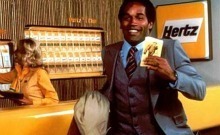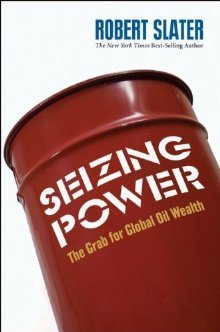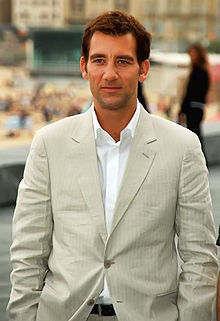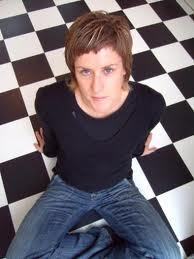Matt Rees's Blog, page 20
December 24, 2010
Review: N.Ireland's new violence in Stuart Neville's thriller sequel
 Our understanding of distant places is so often based purely on their politics – particularly if they have some perceived impact on our own. Journalists tend to focus on that politics, because they can interview leaders and quote ordinary people talking about what those leaders are doing. Let’s say that journalism’s problem is that its aim for objectivity guides it toward the superficialities of politics, while also demanding that it give us an explanation for what’s going on.
Our understanding of distant places is so often based purely on their politics – particularly if they have some perceived impact on our own. Journalists tend to focus on that politics, because they can interview leaders and quote ordinary people talking about what those leaders are doing. Let’s say that journalism’s problem is that its aim for objectivity guides it toward the superficialities of politics, while also demanding that it give us an explanation for what’s going on.Fiction at its best goes beyond such surface politics. It isn’t limited by objectivity. It gives a writer who knows what lies beneath the opportunity to lay it out for us. Only then can we really understand a place. That’s what I’ve felt in writing my novels about Palestinian detective Omar Yussef – who lives in a West Bank locale much talked about by politicians, diplomats and journalists but very little understood. It’s also the great strength of Stuart Neville’s incisive new thriller “Collusion.” (Soho Press, $25)
Neville won the LA Times Book Prize last year for his superb debut “The Ghosts of Belfast.” In that novel, former IRA hitman Gerry Fegan is tormented by the ghosts of his victims. To assuage the ghosts’ demands for revenge, he embarks on a strange spree – killing the men who put him up to those murders. On the way, he understands that he had been a dupe. Top Republicans made money from The Troubles. Now that peace has arrived, they still benefit from the same gangland power, while traumatized bit players like Fegan drink themselves to death.
In Neville’s sequel, that realization is expanded to include the collusion of the title. Jack Lennon, a Catholic detective on the Ulster police force, gradually comes to understand that the supposed battles between different powers in Northern Ireland weren’t the real story. In reality the leaders of these feuding groups relied on each other.
Confronting a Loyalist gang leader, Lennon says: “The collusion, it goes all ways, all direction. All the likes of you ever cared about was lining your own pockets. You didn’t give a shit about any cause, did you? Just so long as you were making money.”
Read the rest of this review on my blog The Man of Twists and Turns.
Published on December 24, 2010 03:24
•
Tags:
collusion, crime-fiction, northern-ireland, omar-yussef, reviews, stewart-neville, the-ghosts-of-belfast, thrillers
December 23, 2010
Extreme weather boosts creativity
 Samuel Johnson wrote that “When two Englishmen meet, their first talk is of the weather.” The good doctor wrote that in 1758, long before the conversation of Englishmen was informed by the hyperbolic outrage of London’s present tabloids. Just lately it seems he might amend his phrasing to “their only talk.”
Samuel Johnson wrote that “When two Englishmen meet, their first talk is of the weather.” The good doctor wrote that in 1758, long before the conversation of Englishmen was informed by the hyperbolic outrage of London’s present tabloids. Just lately it seems he might amend his phrasing to “their only talk.”The British are in a weather frenzy. Snow has shut down Heathrow Airport essentially for five days. Other airports are stuttering, trains are barely operating, roads impassible. The newspapers – and not just the tabloids – accuse the airports authority of dreadful failings, while others curse an unprepared government and the swinging temperatures caused by global warming.
What we writers ought to focus on is the opportunity for unleashing our creativity presented by such extreme conditions.
A writer should seek out extremes. Within himself, of course. But how to uncover those extremes of emotion? External extremes impinge on what goes on in your mind and heart, so that in the end they promote an understanding of the deepest feelings. And it’s deep feeling that makes a novel memorable, more than swish style and zippy plot.
I realized this during the Palestinian intifada. Not because of the extreme weather – though the battles I saw fought out in a rainy January in the West Bank or a sweltering July in Gaza were unrestrained – but rather because I was able to witness people in extreme situations. Surrounded by immoderate violence I saw the worst and best of people. In turn, that evoked my understanding of the best and worst in me.
I came to think of this experience in terms of color. If your everyday life is pretty good, let’s call it green. You get used to seeing green and, even when you change location, you prefer something in a similar shade of green. Then one day there’s a burst of scarlet, and then comes orange, and just as you wonder what that’s all about, your vision is splashed with turquoise. Suddenly the green seems different.
John Lennon wrote that “When the rain falls, they run and hide their heads. They might as well be dead.” He was right: Rain or shine, “The weather’s fine.” If you’re in tune with your surroundings, accepting of them, you can feel your own responses on a deeper level.
Read the rest of this post on my blog The Man of Twists and Turns.
Published on December 23, 2010 04:04
•
Tags:
bible, creativity, crime-fiction, gaza, intifada, jerusalem, john-lennon, palestine, palestinians, rain, snow, united-kingdom, weather, west-bank, writing
December 20, 2010
Israeli pick-up artist protests
 The Jewish holiday of Hanukkah ended last week, bringing to a close an apparently great opportunity for sexual conquest.
The Jewish holiday of Hanukkah ended last week, bringing to a close an apparently great opportunity for sexual conquest.The Center for the Art of Seduction, a Tel Aviv business which runs courses to help men succeed with women (“Do you want to get every girl that you want?”), posted a video earlier this month in which one of its instructors advises men how to make the Jewish holiday a time of fun and frolics with the ladies.
“Ask her, ‘Have you tasted the new donuts this year?’” suggests Tal Lifshitz, posing beside a plate of the jelly donuts traditionally consumed on the holiday and a menorah with its candles burning. “‘What’s your favorite flavor of donuts?’”
This is the kind of approach which, according to the center’s website, will enable you “to have a lot of sex while you’re looking for your special one.”
It also might get you into trouble and, this being Israel, bring out the protesters.
A group of about 150 angry demonstrators descended on the center’s Tel Aviv office Thursday night, accusing the center of training men to coerce women into sex. The protesters carried signs saying, “It could happen to anyone” — “It” being rape.
The protest came after three female students at the University of Haifa filed a complaint with the police against the center and one of its graduates. The women allege rape, incitement to violence and solicitation, although none of them has been a direct victim.
The charges relate to a 4-year-old post on the center’s website by a man who claimed to have had sex with a Czech medical student against her will. On the site, the accusers say, one of the center’s organizers used an alias to commend the tactics.
That case has been making the rounds on Israeli internet forums for months, leading to the charges against the center.
The center is the Israeli outcropping of a men’s seduction subculture that has flourished on the internet since its first appearance in chat rooms during the mid-1990s. It was popularized in 2005 with the publication of Neil Strauss’ bestselling expose, “The Game: Penetrating the Secret Society of Pick-up Artists.”
Strauss detailed many of the techniques of the so-called “PUAs,” or pick-up artists, which are based around the idea that “supplication” — buying dinner, saying nice things — gets men nowhere with women. Rather, a man should employ a subtle put-down, for example.
A search for so-called “Lairs,” online sites for local PUAs to converse and swap information, reveals numerous locations where such groups operate from Salt Lake City to Singapore.
Officials at the Tel Aviv center maintain that their techniques are intended to promote romantic relations and to enable men who otherwise wouldn’t be able to form relationships with women to find happiness.
The donut-recommending Lifshitz, for example, describes himself on the center’s website as enjoying “incredible success with women,” though he might be described as something of a schlub, with the kind of goatee worn by men attempting to disguise the pudginess of their face.
The center opened six years ago and has run courses for 8,000 men. One of its graduates, a 35-year-old named Gal, recounted that an instructor told him the center was “going to make a revolution in Israel so that men will behave like men and women will learn to respect men.”
The center’s website, meanwhile, includes a cartoon of a woman displaying her cleavage and sucking suggestively on a strawberry. The protesters, no doubt, would argue that respect has to go both ways.
Read more post on my blog
Published on December 20, 2010 06:19
•
Tags:
center-for-the-art-of-seduction, hannukah, israel, israelis, jews, neil-strauss, pick-up-artists, protests, sex, tel-aviv, the-game
December 16, 2010
'Go **** yourself," and plotting a novel
 Raymond Chandler once described an activity (not important what) as being “as elaborate a waste of human intelligence as you can find outside an advertising agency.” I have happened upon a dark corporate art still more wasteful and, being a writer, I see how it’s related to the plotting of a novel.
Raymond Chandler once described an activity (not important what) as being “as elaborate a waste of human intelligence as you can find outside an advertising agency.” I have happened upon a dark corporate art still more wasteful and, being a writer, I see how it’s related to the plotting of a novel.I’ve had a couple of mild run-ins with corporate complaints departments of late – customer service departments as they are known. The service, of course, is the kind of servicing offered by a stallion to a mare.
I’ll sum up what’s been going on, and then I’ll tell you why the “customer service” department is the anti-creative, anti-crime novel acme of our society. I’ll also tell you why I bet Dick Cheney doesn’t like crime novels.
But wait, first, my complaints. I rented a car with Hertz on a recent trip to the UK. I was caught on a speed camera doing 36 miles per hour in a 30 mph zone, and elsewhere doing 45 mph in a 40 mph zone. So I have to pay a fine. Well, I don’t like drivers who speed, so I’ll pay the fine.
Yet Hertz charged me 30 pounds plus tax to let me know that I was liable for these fines. I called to tell them I thought this was excessive and was given a very rude brush-off by a nasty Irish woman. I forgave her, because while I owe 60 pounds plus tax for driving too fast, she personally owes a few billion Euros just for being Irish.
I then wrote to Hertz and received a reply from Lisa Walsh of “Customer Services” in which she said the 30 pounds was to cover Hertz’s expenses. “Our financial controller has set the cost at 30 pounds per fine.” Oh, well, if your financial controller says it’s reasonable, what do I know? Lisa then added: “We appreciate your business and look forward to the opportunity to serve your future rental needs.”
Read the rest of this post on my blog The Man of Twists and Turns.
Published on December 16, 2010 07:28
•
Tags:
american-express, crime-fiction, customer-services, dick-cheney, disneyland-paris, glamorgan, hertz-car-rental, raymond-chandler
December 15, 2010
Review: the new oil curse
 Seizing Power: The Grab for Global Oil Wealth by Robert Slater (Bloomberg Press, $29.95)
Seizing Power: The Grab for Global Oil Wealth by Robert Slater (Bloomberg Press, $29.95)Just when Goldman Sachs had you convinced that Wall Street would be the instrument of global doom, this excellent primer on the future of oil arrives to demonstrate that the specter of diminishing crude reserves could be just as lethal. And not just to the world economy.
The “petroaggressors” of Robert Slater’s new book aren’t the usual Middle Eastern suspects. “Seizing Power” lifts the veil on a major shift in the oil business that brings enormous wealth and power to relatively small dictatorships and represents another tool with which China, for one, has stolen a jump on the United States.
Slater, biographer of hedge-fund kingpin George Soros and former General Electric chief executive Jack Welch, lays out the history of the world oil markets from colonial speculation, to dominance by the massive oil conglomerates known as the “Seven Sisters,” through partial or complete nationalization by developing countries, and on to the current nervous state of flux. He does this with a wealth of statistics, and with case studies of big time petroaggressors, like Venezuelan President Hugo Chavez, and the more common corruption of the hoodlums at the helm of Chad, an African nation whose rulers skim off oil money and aid while its people languish in poverty.
The rise in oil prices in the middle of the last decade — coming after the Sept. 11 attacks and war in Iraq — gave the likes of Chavez even more of a stick with which to beat the West. “The petroaggressors had always been strident, flexing their muscles inordinately, making threats, or delivering ultimatums to the West,” Slater writes. “However, the new oil wealth pouring into their coffers gave them an even greater capacity to throw their weight around.”
Why? Because Western oil companies know the oil is running out — reserves may be played out within 50 years and certainly within a 100, writes Slater, quoting latest estimates. “‘When there’s a lack of oxygen,’” Slater quotes an oil analyst, “‘we all want the tank.’” So oil companies are forced to enter unstable political environments and to pay ever larger fees for doing so. The risks are enormous (though that hasn’t stopped oil companies making equally enormous profits. Yet.)
Read the rest of this post on my blog The Man of Twists and Turns.
Published on December 15, 2010 09:39
•
Tags:
bloomberg-press, bolivia, book-reviews, chad, goldman-sachs, hugo-chavez, middle-east, oil, opec, prius, robert-slater, russia, seizing-power, september-11, venezuela, wall-street
December 13, 2010
New West Bank road to peace?
 ST. GEORGE’S MONASTERY, West Bank — Gathered in the chapel of this outpost in the Judean Desert last week, the Orthodox priests chanted “Lord, have mercy” in Greek, in a service of blessing for a new road that makes the venerable building accessible to the growing number of tourists willing to dare a visit to the troubled Holy Land.
ST. GEORGE’S MONASTERY, West Bank — Gathered in the chapel of this outpost in the Judean Desert last week, the Orthodox priests chanted “Lord, have mercy” in Greek, in a service of blessing for a new road that makes the venerable building accessible to the growing number of tourists willing to dare a visit to the troubled Holy Land.As far as the Palestinian Authority is concerned, the priests may as well have been speaking, well, Greek. Because the road was built by Israel over land the Palestinians consider their own, officials in Ramallah condemned the priests’ participation in the road’s inauguration ceremony.
Palestinian Prime Minister Salam Fayyad “expressed surprise” that the Orthodox priests joined the director-general of the Israeli Tourism Ministry Tuesday at the monastery, which clings to a cliff side over Wadi Qelt, a deep canyon running down to the Jordan Valley. Another Palestinian minister said the monks’ presence “gave a deceiving impression” about the status of the land around St. George’s.
Like other stretches on the rocky road that still clings to the misnomer “peace process,” the Palestinian protest will fade like a mirage in the desert surrounding St. George’s. More important in the end is the (literally) concrete path laid out for pilgrims to visit one of the most important and most beguilingly beautiful sacred sites in the Holy Land.
Archbishop Aristarchos, the secretary of the Greek Orthodox Patriarchate in Jerusalem and the leader of the brief prayer service, was diplomatic in his comments, when asked about Palestinian complaints over the road.
“This is a monastery of prayer for peace in our region, for peace in the Holy Land,” Aristarchos said. “The road brings full access for pilgrims who are messengers of peace to the Holy Land.”
The $500,000 road cuts over from the main Jerusalem-Jericho highway in front of the entrance to an Israeli settlement. It snakes around dusty dunes and dry wadis. To the east, the view is hazy down over the Jordan Valley to the mountains rising in the Hashemite Kingdom. After a 10-minute drive, visitors arrive at a parking lot.
Read the rest of this post on my blog
Published on December 13, 2010 08:16
•
Tags:
arabs, bethlehem, christians, churches, greek-orthodox, holy-land, israel, israeli-tourism-ministry, israelis, jericho, jerusalem, jews, jordan-valley, judean-desert, nazareth, palestine, palestinians, salam-fayyad, st-george-s-monastery, wadi-qelt, west-bank
December 9, 2010
Ikea and the Crime Writer
 There are many theories as to why Scandinavian crime writers prosper in the bestseller lists. But I know why it is. Ikea.
There are many theories as to why Scandinavian crime writers prosper in the bestseller lists. But I know why it is. Ikea.I just bought a new set of Ikea shelves for my office. I’ll get into exactly how that has altered the configuration of my workspace, but at this point let me just note that it makes my writing room seem a thousand times more orderly, less cluttered. As any feng shui expert would tell you, a disorganized room will yield fractured thoughts and fill the mind of its occupier with distraction. For a writer who needs to focus on his manuscript and whose manuscript requires a consistent vision, that’s a bad thing.
So these shelves, produced by a company based in Sweden, have no doubt created the clean, neat spaces Scandinavian crime writers like Henning Mankell and Jo Nesbo need to write their clean, neat stories.
I was in need of a little neatening in my office, because my research had started to create clutter. There were piles of books on Mozart, music and the Austrian Empire related to my forthcoming historical crime novel MOZART’S LAST ARIA. Then new mountains of books and documents for CARAVAGGIO ON FIRE, my novel about the Italian artist which will be out in a year and a half.
But that’s not all. For my Mozart book, I learned the piano. So suddenly there’s a piano in my office. For Caravaggio, I’ve been learning to paint with oils, so there’s an easel and painting implements and canvases jostling for space with my guitars and bass guitars and amplifiers (those aren’t research; it’s a hobby).
Add to that the large numbers of foreign editions of my books I’m delighted to receive when I’m published in Indonesia and Romania and Iceland, but which I’m unable to give to friends due to the fact that I only know one Icelander, my Romanian landlord already read the book, and the only Indonesian I know is my editor and of course he has already read the book, too.
Read the rest of this post on my blog The Man of Twists and Turns.
Published on December 09, 2010 01:07
•
Tags:
caravaggio, caravaggio-on-fire, crime-fiction, feng-shui, henning-mankell, iceland, ikea, indonesia, italy, jo-nesbo, mozart, mozart-s-last-aria, romania, sweden, the-guardian, writers-rooms, writing
December 1, 2010
Wikileaks: The Butler Did It
 If I wrote a crime novel filled with the kind of twaddle that passes for breathtaking revelation in this week’s blanket Wikileaks coverage, it’d be panned.
If I wrote a crime novel filled with the kind of twaddle that passes for breathtaking revelation in this week’s blanket Wikileaks coverage, it’d be panned.Surprise, surprise. The Saudis want America to do a number on Iran, without taking responsibility for it themselves (and meanwhile Saudis are the big funders of al-Qaeda). Sarkozy shouts at his staff. Ghaddafi probably has sex with his blonde “nurse.” Diplomats sometimes say nice things in public about an international leader when they really think he’s a corrupt psychopath.
It isn’t the stuff of crime fiction and thrillers. It’s more like the predictable, domestic, gossipy rubbish frequently called literary fiction. Just substitute the “world” for a Midwest university campus, the Saudis for the International Affairs Department, America for the Dean’s Office, and Iran for the Business School, and you’ll see what I mean.
The Wikileaks story is really only a revelation to those who believe that when a leader tells the press that “Talks have been fruitful and productive” he’s saying something good. Anyone with any sense knows that what he really means is “I’m only saying this at all because you journalists are stupid enough to print it. Ask my press secretary to tell you his spin on background and you can pretend that’s true, too. Remember, I told you you’re stupid.”
Crime fiction readers will already be way beyond Wikileaks. What crime fans like is literature that pares society down to its essential corruption. Not because we want to believe that the world is entirely bad. Rather it’s because we are neither shocked nor pretend to be shocked by the news that there may be things in the world we don’t know about.
Read the rest of this post on my blog
Published on December 01, 2010 22:41
•
Tags:
crime-fiction, diplomacy, ghaddafi, journalism, sarkozy, saudi-arabia, thrillers, united-states, wikileaks
November 11, 2010
Clive Owen is going to die
 British actor Clive Owen, star of box office hits like “Sin City,” “Elizabeth: The Golden Age,” and “King Arthur,” is expected to die, according to people familiar with death.
British actor Clive Owen, star of box office hits like “Sin City,” “Elizabeth: The Golden Age,” and “King Arthur,” is expected to die, according to people familiar with death.The 46-year-old heartthrob, famed for his slightly nasal London twang, lusterless delivery and not being as good as co-star Julia Roberts in “Duplicity,” is in apparently good health, but death experts tell “The Man of Twists and Turns” that he will probably be tragically dead by 2060 at most and could go any day between now and then.
To be sure, this revelation, which will shock Hollywood, doesn’t take into account cryogenics or further potential developments in the Botoxing of internal organs by Southern Californian doctors, dental hygienists and auto mechanics. Nonetheless, Hollywood bloggers are sure to take news of Owen’s eventual demise as a sign of the mortality of other stars who seem to be otherwise a long way from their end.
Read the rest of this post on my blog The Man of Twists and Turns.
Published on November 11, 2010 06:39
•
Tags:
ben-affleck, blaise-pascal, bloggers, blogging, botox, cache, calista-flockhart, clive-owen, duplicity, elizabeth-the-golden-age, entourage, hollywood, hunter-s-thompson, johnny-depp, julia-roberts, king-arthur, mark-wahlberg, royal-academy-of-dramatic-art, santa-monica, scarlett-johansson, sin-city, southern-california, the-pink-panther, tinseltown
November 7, 2010
Swallow semen, identify penis: Helen Fitzgerald’s Writing Life interview
 It will be a long time before anyone thinks of a better way to open their first novel than this: “My best friend Sarah was asleep. Her husband was lying beside her, and I was swallowing his semen.” That’s paragraph two of “Dead Lovely” by Helen Fitzgerald, a fabulous crime novel which manages to amuse, titillate and disturb. Since she published Dead Lovely in 2008, Helen has released three more adult titles and a teen novel. Born in Australia, she lives in Glasgow, Scotland, where she’s married to a Scot of Italian origin. We shared the stage at a German crime fiction festival in Menden, near Dortmund, late this summer, bonding over writing and Tuscany. In person she’s as amusing as her books, and when she talks about writing it’s with a mix of unassuming practicality and deep insight, as you’ll see from this interview.
It will be a long time before anyone thinks of a better way to open their first novel than this: “My best friend Sarah was asleep. Her husband was lying beside her, and I was swallowing his semen.” That’s paragraph two of “Dead Lovely” by Helen Fitzgerald, a fabulous crime novel which manages to amuse, titillate and disturb. Since she published Dead Lovely in 2008, Helen has released three more adult titles and a teen novel. Born in Australia, she lives in Glasgow, Scotland, where she’s married to a Scot of Italian origin. We shared the stage at a German crime fiction festival in Menden, near Dortmund, late this summer, bonding over writing and Tuscany. In person she’s as amusing as her books, and when she talks about writing it’s with a mix of unassuming practicality and deep insight, as you’ll see from this interview.How long did it take you to get published?
My husband is a screenwriter and he made it look very easy – most of his films seemed to make it to the big or small screen, and the word count for a screenplay was enticingly small (lots of lovely white spaces on the page). So I thought “If he can do this, I can!” I spent five years writing screenplays before realising that it was hard, and that I was a spectacular failure at it. One of my screenplays came very close to being green-lit. I decided that if this wasn’t produced, I’d write a book (which was what I’d always wanted to do, really). It didn’t get made, so I sat down and turned the treatment into my first book, Dead Lovely. It took three months. And another three before Faber and Faber bought it. So, my first answer is that it took me years to get published. My second is that it took three months.
Would you recommend any books on writing?
The only books I’ve ever read on writing are screenwriting books. Initially, I read everything I could get my hands on, but the only one I remember is How to Write Screenplays That Sell by Michael Hague. This book helped a great deal with structure, plot and characterization. It’s probably because of my background in screenwriting, and the lessons I learned from this book, that my novels have three acts and are easy to adapt into screenplays.
What’s a typical writing day?
Mostly I work at home in an office in the attic. I get the kids off to school, answer emails and do admin for a while, then settle down to a few hours writing before they arrive home again. My husband works in the office next door to mine, so we often yell strange things to each other through the walls like “Can you dissolve a body?” If I have a deadline, or if I’m really motivated by an idea, I can work all day and all night. My husband and I are pretty flexible and work well as a team, giving each other time off from domestic duties if one is on a roll. About three days a week, I head into Glasgow City centre, where I’ve rented a desk space in a studio. I missed having colleagues and life around me, and I love being shamed into productivity by other hard working people.
Plug your latest book. What’s it about? Why’s it so great?
Bloody Women is about a woman who’s about to get married to her Italian fiancé and leave Scotland to live with him in Tuscany. Before leaving her home, she decides to meet up with her ex-boyfriends to tie up loose ends and make sure she’s doing the right thing. Problem is, her exes all wind up dead, and she gets the blame. The book was fun to write and I believe it’s fun to read. It’s also pretty dark, looking at bi-polar disorder and a nasty-pasty serial killer.
Read the rest of this post on my blog The Man of Twists and Turns.
Published on November 07, 2010 08:42
•
Tags:
dead-lovely, dortmund, helen-fitzgerald, interviews, menden, michael-hague, mord-am-hellweg, screenplays, writers, writing-life



